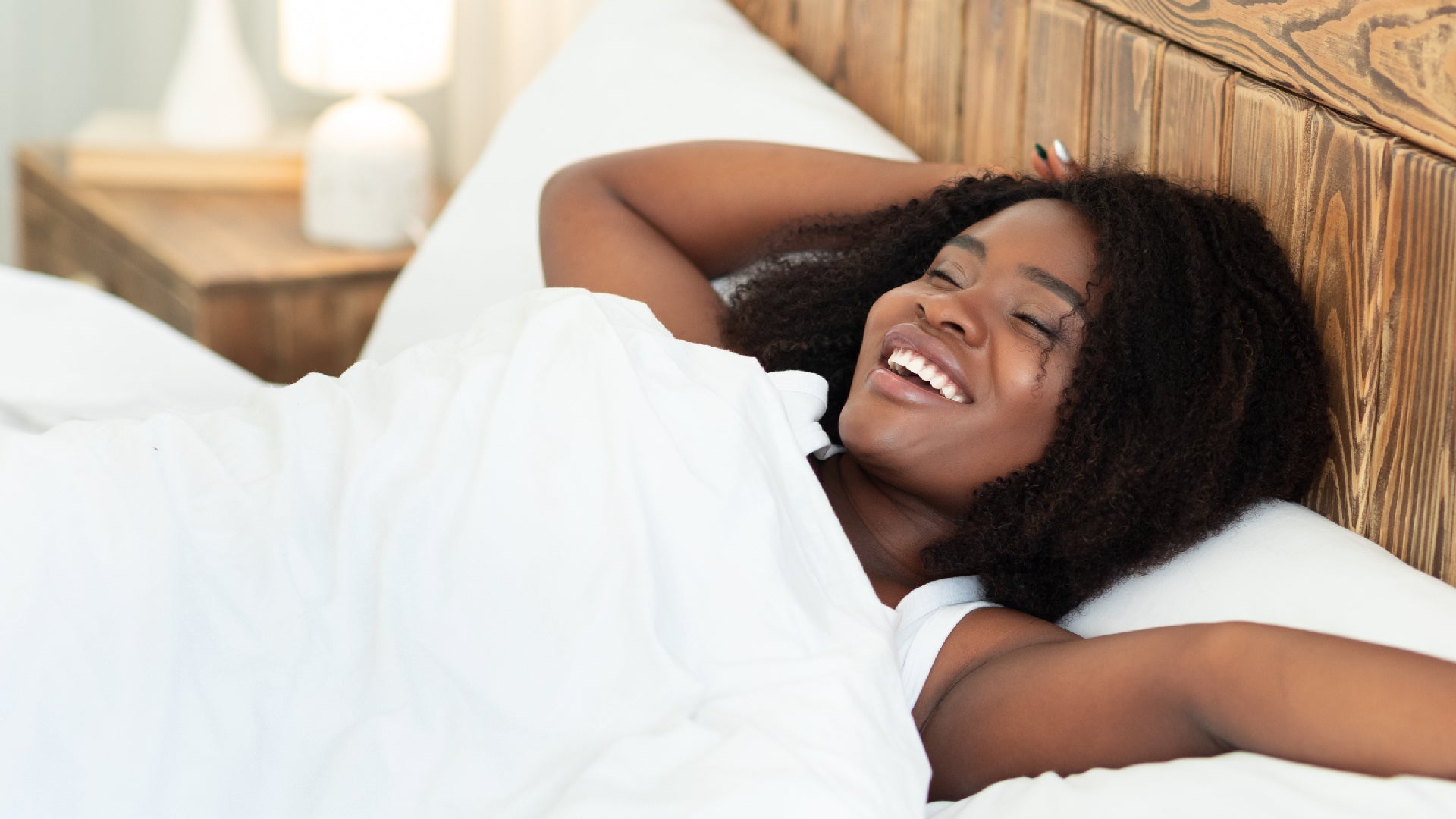
Great Sleep = Healthier Skin: Your Guide To Better Sleep Starts Here
Read on for all the proof you need that sleep, alongside an awesome skincare routine and a balanced diet, is everything for beautiful, healthy skin.
‘Beauty sleep.’ How many times have you heard that phrase banded about? Funnily enough, the powers of getting your beauty sleep is not just an old wives’ tale made up to force you to go to bed at a decent hour. In fact, there’s a world of truth in it because the powers of quality sleep are almost unbeatable for the look and health of your skin.
Get your eight hours, invest in a consistent skincare routine, eat well, stress less and exercise regularly, and you’ve pretty much nailed the ideal combination for fabulous skin.
So let’s begin with arguably the most important of those five skin-saving must-dos: sleep. Sleep is crucial for every single process within the human body. From brain function and mental wellbeing to your entire physical health, without sleep, you simply would not be able to successfully live. And as far as your skin is concerned? Well, this important period of rest is when your skin undergoes a busy time of regeneration and rejuvenation.
What Happens To Your Skin When You're Asleep?
Sleep plays a crucial role in the way your skin looks and feels because sleep time equals action stations for many of its important biological processes. After a busy day fighting hard to protect itself from environmental damage from things like pollution and UV radiation, when you hit the sack, your skin goes into full-on repair mode. The following occurs...
Collagen Production Accelerates
Collagen is an important protein found within the skin that gives it optimal strength and structure. Collagen synthesis remains pretty stable during the day but when your body is sleeping, growth hormones kick in that stimulate a boost in production.
Blood Flow Increases
Strangely enough, your circulation accelerates during sleep – even more so during deep sleep. This is great news for the skin as this high level of blood delivers nutrient-rich oxygen to the cells, supporting regeneration and helping the skin to repair itself.
Antioxidant-Rich Melatonin Kicks In
Melatonin is a hormone that’s produced by the body when it’s dark. It has incredible antioxidant properties which makes it your very own damage control hormone, neutralizing free radicals and aiding repair from environmental stressors like pollution and UV radiation.
Cellular Turnover Almost Doubles
Skin cells are constantly renewing themselves throughout the day, replacing dead cells with new ones to keep your skin looking fresh and radiant. This renewal process increases when you’re asleep which expedites repair from environmental damage. Say no more.
Cortisol Levels Drop
Otherwise known as the ‘stress hormone’ (which says it all), cortisol is an important hormone that keeps you aware and alert throughout the day. When you’re asleep, cortisol levels drop to reduce stress on the body and help your skin optimize this crucial recovery period.
It’s A Fact: Poor Sleep Can Seriously Impact Your Skin
Miss out on the recommended seven to nine hours of sleep each night and you deprive your skin of all the great stuff it goes through during these vital hours of regeneration and recovery. What does this mean for your complexion? Nothing good.
Disrupting collagen production probably creates the biggest impact on the skin as collagen is the absolute foundation for healthy skin. When you deprive it of this important time your levels of collagen become depleted which has a knock-on effect across many areas of skin health. Hydration becomes impaired, your barrier function gets compromised and all manner of premature aging signs start to crop up including fine lines, wrinkles, dark spots and sagging skin.
Couple this with less time for a) antioxidants to work their wonders, b) blood flow to nourish the skin and c) cellular turnover to kick into gear and dull, dehydrated skin is practically inevitable. Not to mention the fact that high levels of cortisol encourage sebum production and increase inflammation. Which sounds like the perfect recipe for breakouts.
Because it is.
5 Tips For Improving Your Sleep
1. Keep A Regular Schedule
According to the Mayo Clinic, one of the most important ways to get a better night’s sleep is to go to bed and get up at a similar time each day so that you get around seven or eight hours of quality sleep daily – yes, even at the weekends. Consistency is vital for maintaining a successful sleep-wake cycle and thus allowing your skin the time to regenerate.
2. Optimize Your Sleep Environment
Make sure your bedroom is dark, quiet and at a cool, comfortable temperature. Studies show that the optimum temperature for restful sleep is somewhere between 60 and 67 degrees Fahrenheit, so aim for that if you can. If your curtains aren’t dark enough, invest in a sleep mask and if noise is an issue, ear plugs work wonders.
To truly help your skin do its best as you sleep, cleanse, tone, treat and moisturize before bed every night. We love the combination of Retinol Facial Serum followed by Vitamin C Deep Hydration Night Cream. Oh, and you might want to think about purchasing a humidifier for your bedroom – especially if you live in a dry climate. This’ll help stop your skin from becoming dehydrated overnight.
3. Avoid Screen Time Before Bed
Staring at any kind of light-emitting screen before bedtime will mess with your circadian rhythm and delay natural melatonin production so put your phones, tablets and laptops down at least an hour before you hit the sack. Come on people, you’ve got this!
4. Limit Late Night Treats
Caffeine and alcohol stimulate your nervous system, and their effects take hours to wear off which stops your body from relaxing for quite some time. Not the most sensible idea before bed, so best not to indulge too heavily.
Similarly, don’t hit the sack hungry or completely stuffed full of rich food. This can cause discomfort and stop you from falling asleep. Small, healthy snacks like raw veggies, fruit or natural yogurt are fine, but a late-night, three-course meal? Nope.
5. Manage Your Thoughts
If you have a lot on your mind, a great trick to stop you from tossing, turning and worrying all night is to jot down your thoughts or worries. Make a ‘to-do’ list if you need to, or simply make a note of random thoughts and ideas. This is a very powerful way to get things off your chest and give you a clear mind for a better night’s sleep.
And as we've discovered, a better night's sleep goes a long way to giving you healthier-looking skin.








